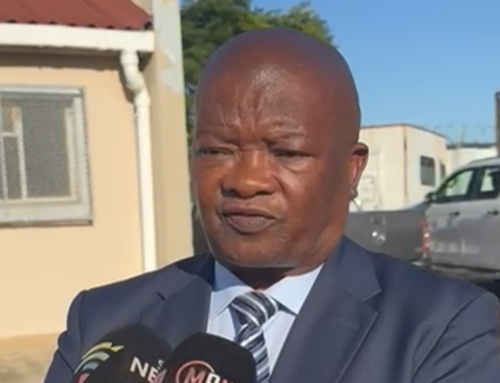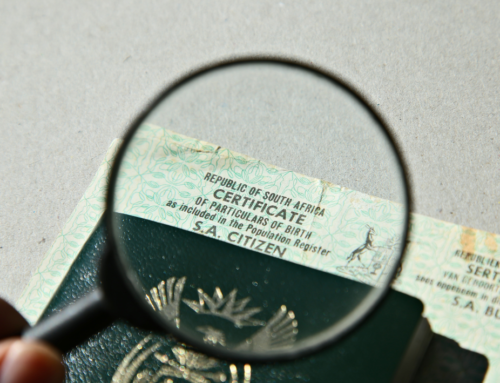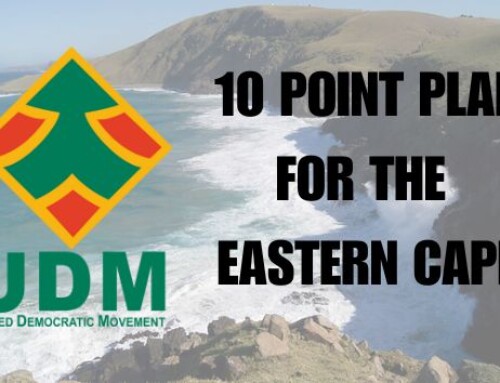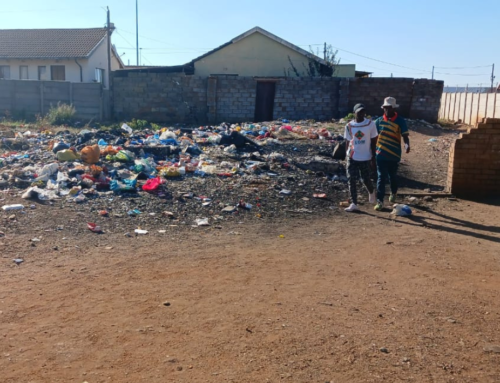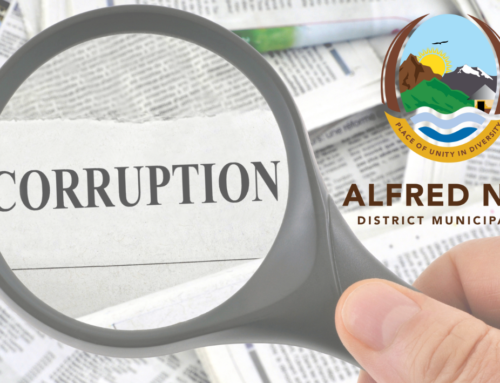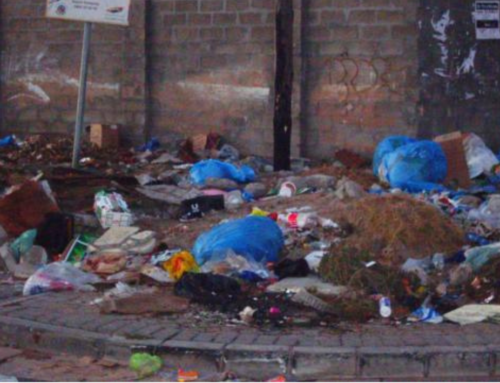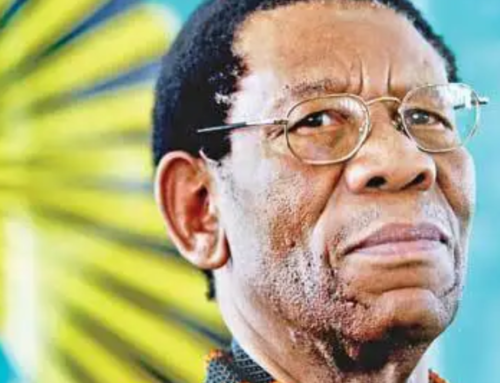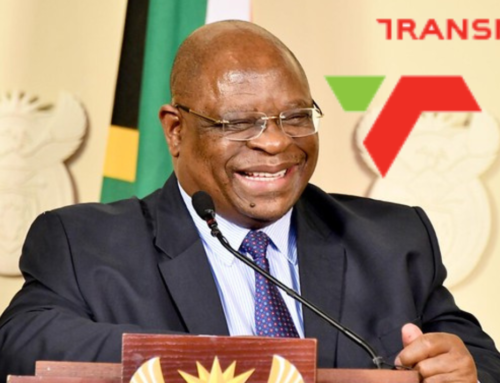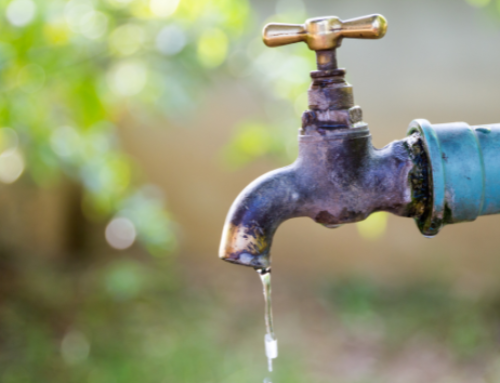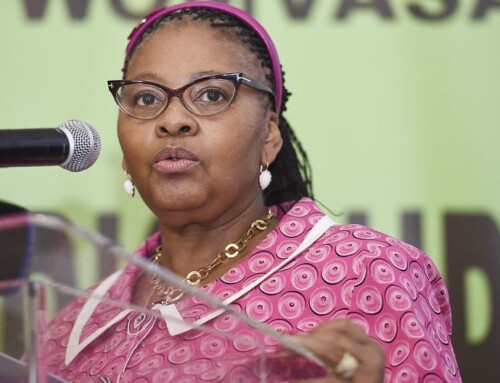 Keynote Address by Mr Bantu Holomisa, MP and President of the United Democratic Movement at the UDM National General Council 28 April 2023 at Gallager Convention Centre, Midrand, Gauteng
Keynote Address by Mr Bantu Holomisa, MP and President of the United Democratic Movement at the UDM National General Council 28 April 2023 at Gallager Convention Centre, Midrand, Gauteng
Check against delivery
• UDM National Office Bearers
• Provincial Leaders
• Public Representatives
• UDM members from across the country
1. Welcome
We welcome you to this National General Council of the United Democratic Movement (UDM) and thank you for the commitment you have made to the Party in being here and contributing to our efforts for today.
Aside from our goals of talking about the state of the nation and that of the UDM, our main mission is to talk about the 2024 National and Provincial Elections, our National Congress in the same years and our preparedness for what lies ahead.
The climate is conducive for us to grow the party, given the frustrations which are in the open from the public point of view. There are acres and acres of space, because the public is yearning for political parties that can bring solutions to the problems of the country.
You will recall that our National Congress had to be postponed due to the Covid-19 pandemic. There is no further excuse as we are campaigning for elections, we are working toward a National Congress in tandem with that.
In our discussion document we have made reference to the fact that National Office Bearer-vacancies exist due to a number of deaths. We are looking forward to your input and filling those positions in the interim pending the National Congress in 2024.
One of the criticisms that has been levelled against the UDM by our supporters is that the UDM is not visible enough, when we fill these vacancies, we must look at the people who would hit the ground running and not just people who accept positions and not work.
It is an open secret that the party has been in a decline since it has been established, so we must make sure that we regain the lost ground. We can only do that if we evaluate our strategy of building and growing the party. Fortunately, we have a youth component who has grown up in the UDM, who must raise there hands now.
We will of course talk about our discussion document: “Let’s win SA back from the state capturers”, which was distributed a few weeks ago and again issued to you this morning, with a view to distil a strong manifesto with which we can contest next year’s elections.
This discussion document is available on our website at www.udm.org.za. (click here)
You will find that this document covers crime, violence, lawlessness, the faltering economy, unemployment, poverty, infrastructure development, corruption, State Capture, the Zondo Commission, illicit financial flows, the ambivalence caused by the tripartite alliance, education, gender-based violence, climate change and the environment, the challenges facing UDM, the need to spread the UDM and party visibility, and many other topics.
It is a mouthful.
We therefore have much on our plate at this one-day council.
After today, you will go out to the rest of our structures and the public and speak with authority on the resolutions we are to take for the 2024 National and Provincial Elections and spread the gospel of the UDM. You must also go out and have people, especially youngsters over the age of 18, register to vote.
Whilst we prepare for elections, we must bear in mind the collapse of municipalities, we all know that the Auditor General’s reports have been critical about the way they have been run. They have blamed maladministration and corruption for the collapse of these municipalities.
As we are preparing our manifesto, we must have a clear picture of how we can repair local government. Therefore, the quality of the people we select as public representatives, at all three tiers of government, must be top notch.
There is just no room for mediocrity if we want to turn around South Africa, take it back from the State Capturers and become a Winning Nation.
2. Introduction
Ladies and gentlemen, the UDM can celebrate the fact that for 26 years it has been consistent in its stance, that of batting on the wicket of the ethics of good governance.
We started banging the drum of anti-corruption back in the day when we were vilified and called “counterrevolutionaries”.
The UDM has been vindicated over the years and we have had several great successes along the way, for example:
• The UDM was instrumental in agitating for the abolishment of the immoral floor-crossing legislation, which is no longer on our statute books.
• We succeeded in having the Independent Electoral Commission’s former Chief Electoral Officer resign because of an irregular lease agreement she had arranged.
• We were part of the legal action taken to preserve and protect the former Public Protector Thuli Madonsela’s report on state capture.
• We did our part, together with other South Africans, in forcing the ruling party to have former president Jacob Zuma to vacate his office, specifically taking the matter of the secret ballot to the Constitutional Court.
• The UDM exposed corruption at the Public Investment Corporation (PIC) amounting to billions of rands. This directly led to the establishment of the Mpati Commission of Inquiry, which has vindicated us.
One thing is certain that the pensions of the government employees is under severe threat because the PIC was seemingly established as a mere piggy bank for some. Both unlisted and listed companies are not servicing their loans.
An additional threat has recently arisen regarding a R1.35 trillion claim against the PIC. The UDM has written to Scopa and the Minister of Finance to establish how secure government pensions in fact are.
I would seriously recommend that pensioners’ associations ask the plaintiffs in this court case to explain to them the details of this claim and the seriousness of the threat, because government seems to be playing hide-and-seek.
• Since the time of the now defunct Idasa, as early as 1999, we saw that some parties were using state resources to line party coffers, and the UDM has campaigned for transparent and equitable party funding. This was blocked by the two main players for years, yet we were recently proven right when the legislation governing party funding was changed to level the playing field a little bit.
• We were part of the drive that led to the establishment of the Zondo Commission, which has vindicated the UDM in our position that the ruling party has had its hands in the cookie jar for years.
• The UDM has led the initiative of opposition parties working together to show a united front on various issues, including shedding a light on the ruling party’s looting spree. We have managed to apply some breaks.
• The UDM has been advocating for changes to the Electoral Act for many years, and a step in the right direction was recently forced by the Constitutional Court, which changes the Act to allow for independent candidates to stand in national and provincial elections. But it has not gone far enough.
If we are serious about improving accountability, we must have an electoral system that introduces a mixed proportional and constituency-based system, that also allows the people to elect their own president directly.
• South African Federation of Trade Unions (SAFTU) General Secretary, Mr Zwelizima Vavi, and I successfully brokered a peace accord between the Congress for Democratic Taxi Association (CODETA) and the Cape Amalgamated Taxi Association (CATA) after the conflict saw many deaths and injuries.
• UDM Deputy President Nqabayomzi Kwankwa’s African Parliamentarians Association for Human Rights (AfriPAHR) have been doing sterling work across the globe.
• South African Defence Force and SATBVC military veterans brought to our attention, that the Minister of Defence and Military Veterans was attempting to cause division amongst veterans by publishing regulations seeking to regulate their pension benefits in a contentious manner.
After I had raised this matter in this year’s SONA debate, President Ramaphosa had instructed that the matter be handled by his Deputy President. I am happy to report that the Minister had in the meantime, through the pressure exerted by the UDM, withdrew the contentious regulations and that all military veterans will now be treated equally.
• We have moved along quite nicely with the group of resigned Eastern Cape teachers who are seeking reemployment, who had approached the UDM for assistance.
I am happy to report that a teachers’ representative committee had met, last week, with the Eastern Cape MEC for Education Fundile Gade and his officials. They have agreed to attend to the teachers’ problems and that a new circular will be published to affect their decision.
• After we took up the SATBVC government pensioners’ complaints with President Ramaphosa at the SONA debate in February 2023, he had referred the matter to Minister of Finance Enoch Godongwana.
What happened in these cases is that people who had started their employment with the SATBVC countries in the 1970s or 80s had their pensions transferred to the Government Employees Pension Fund (GEPF), from asset management companies like Alexander Forbes, Sanlam, etc., in terms of the Act of 1996. What shocks some retirees is that once they take retirement, their pensions are calculated since 1996, instead of their original employment date.
Unfortunately, despite the fact that some progress had been made, in that a Pensioners Representatives’ Committee was formed and their report submitted to the Minister. We are however at an impasse, almost three months into the process where the Minister seems to be unable to give us a date to meet as was the instruction by the President.
• The UDM and 17 other concerned South African parties and individuals have joined hands to take Eskom, Nersa and government to court to establish exactly what the reasons are behind loadshedding. To compound matters, we have at present the Minister of Electricity and a Minister of Mineral Resources and Energy fighting amongst themselves.
This case was heard weeks back and it is frustrating that the judiciary in South Africa is lagging in issuing judgements, so we do not yet know the outcome.
• The UDM recently exposed serious alleged wastage of money at the National Student Financial Aid Scheme (NSFAS), this whilst students are not getting paid in time and others are denied the opportunity to access much needed funds at all.
NSFAS recently moved to another building using a turn-key solution, from a building where the rent had been R500,000 per month, to one where the rent now is R2 million per month.
• The UDM has led the process of talks between opposition parties. We will stick to the agenda of closing opposition ranks where we have a common position.
At a meeting on 15 March 2023, the Forum of Political Parties had resolved to have further talks about coalition and to have a meeting with the Independent Electoral Commission (IEC).
The Forum of Political Parties had then met with the IEC on 25 April 2023 and were briefed about the changes to the Electoral Act and we also raised the issue of the appointment of service providers such as auditors of results.
We will continue to engage with the IEC and soon have a meeting to talk about coalitions that will include opposition parties outside Parliament.
• Regarding our other unceasing constituency work, we have been advocating for correctional services employees and made some noise regarding the SETAs, as well as a bevy of individuals. Students may find many of these correspondences on the UDM’s website at www.udm.org.za.
3. South Africa at a glance
Frustrations in South Africa are at an all-time high.
South Africans are fed up with the lack of accountability, the general lawlessness and instability.
The current insecurity in the country is bad for investors, both local and abroad. Unless these underlying issues are addressed, none of the attending issues such as our economy can be addressed.
A massive majority of our people live in informal settlements amongst litter and rats. South Africans are jobless. Health and education provision is poor.
Level 6 loadshedding has become a regular feature of our lives. The money that was supposed to properly develop Medupi and Kusile was syphoned off by the ruling party and ended up at Luthuli House via Chancellor House.
The Bosasa saga is well documented via the evidence that had been revealed at the Zondo Commission. The corrupt largesse of the elite has spread, and they do not see anything wrong with their actions.
Government services are in chaos. Infrastructure development is lagging, and so the list goes on.
The ruling party shamelessly abuses their majority in Parliament to block decisions and to protect their own at the expense of the country. As they did in the Phala Phala saga with the Section 89 Independent Panel chaired by Chief Justice Sandile Ngcobo and in the case of establishing an ad-hoc committee to probe allegations of rampant corruption and criminal cartels operating at Eskom that allegedly involve high-ranking ruling party politicians.
The country can no longer put their trust in the so-called self-correcting nature of the ruling party. For instance, their foreign and economic policies are contradicting and causes confusion. There is no discipline and coherence.
In particular where the soaring crime rates are concerned, and the instability that it causes, the law enforcement and security experts in the UDM should gather to draft a paper on these issues and their solutions. This document should feed into the UDM’s 2024 Election Manifesto.
Any one political party that thinks it is going to make a difference on its own is living in a fool’s paradise.
It is incumbent on the UDM to pull up its socks and to ensure that it plays its role in working with other concerned South Africans in causing tangible change in this country.
4. Taking South Africa back from the State Capturers
The immediate obstacle, as revealed by the Zondo Commission, is the fact that some leaders and parties are helping themselves to government resources.
Corruption, maladministration and State Capture have destroyed the gains of our freedom.
The resources that were supposed to be spent on the development of the nation, were stolen by the corrupt few.
We must take South Africa back from the State Capturers.
5. 2024 is an opportunity
The 2024 National and Provincial Elections is an opportunity to make sure that a new government is put in place to affect tangible change.
Amongst others, legislation needs to be tightened up to prevent corruption, as per the recommendations of the Zondo Commission and changes need to be made to the Electoral Act.
6. Creation of a New Alliance
It is said that millions of voters stayed at home in the 2022 municipal elections, because they were fed up with the party they traditionally vote for and none of the current selection of parties on the political menu had attracted their support.
As a result of the political frustrations in South Africa, there is a proliferation of political parties, as people are searching for answers.
Our analysis of the changing socio-eco-political order in South Africa formation, and politics in South Africa indicates that there will be discernible political shifts along interest group divides, distinguished by common concerns and aspirations.
This process will move towards the crystallisation of two major political streams, which express the ethos of the beneficiaries of the established order, on the one hand, and the aspirations of the emerging major social groupings that are marginalised at present on the other hand.
This will necessitate the emergence of two major political formations representing these interest groups.
Indications are that the ruling party is already catering for the elite and pursuing economic policies that benefit a few who share a common vision with the elites of the core world economies.
The truth of the matter is the ruling tripartite alliance has failed South Africans. The thinking out there is that there is a need for a new alliance.
This picture is not likely to change for the 2024 National and Provincial Elections. So, is South Africa forever doomed to suffer the muddled and directionless politics of today, where the electorate feels uninspired to fulfil their constitutional duty to vote?
One thing is however patently clear, multi-party democracy is our only defence against one-party dominance and dictatorship, and this country is finely balanced between opportunity and disaster.
Political parties might struggle to find each other, considering that they have different ideologies and political philosophies.
The advantage is that precedents have been created in different places in the world where political parties with different interests work together without losing their identities.
In fact, we have the perfect local example where, for years, the ruling party comprised of communists, capitalists, traditionalists, religious groups, liberals, unionists and even their old foe, the National Party, sat at the same table and spoke the same language to advance the interests of South Africa.
Furthermore, there are more issues where we as South Africans agree than disagree, amongst others, the economy, corruption, service delivery, unemployment, poverty, education, health, environment, crime, safety and security, and civil disobedience.
It is therefore possible to rally behind these unifying issues, but we must find a workable model, a vehicle, a common language, and a common message.
Lastly, we should find a way to accommodate other stakeholders, such as civil society, labour, business, youth and gender formations, traditional leadership institutions, faith-based organisations, special interest groups, minority interest groups and the public at large.
It therefore is possible for opposition parties to contest the 2024 National and Provincial Elections under one banner, but that they retain their identities.
This can be done by forming an alliance i.e. a pact between two or more parties made in order to advance common goals and to secure common interests ahead of elections, with a medium to long term vision on its execution.
An alliance agreement, governing cooperation between the different stakeholders, should be drafted with a clear mission, vision and objectives and it should also define the role of each stakeholder.
This would enable the various stakeholders to pursue a set of agreed upon goals, whilst each party retains their independence.
Some of the benefits of such an alliance include, but are not limited to, substantially improving competitiveness, sharing and bundling competencies and resources across provinces.
However, the success of such an alliance depends on the stakeholders’ ability to create a win-win outcome for all the partners in the alliance. Formalising the arrangement would guide interaction with the public, to avoid confusion and sending out mixed messages to the public.
Should there be consensus to form an alliance, interested stakeholders should establish an umbrella body where all partners could contest the 2024 elections under one banner, without them losing their identities.
In order to contest elections, the alliance’s umbrella body must be registered as a political party with the Independent Electoral Commission (IEC). We must strive to be as inclusive as possible, and we should champion inclusivity, equality and transparency.
The responsibility of making this project work cannot rely on only one party. It would therefore make sense to establish a Committee of Stakeholders, that will act as a steering committee, which shall be mandated to, among others:
1. Draft a memorandum of operation, a constitution, and a contract between the various stakeholders;
2. Develop a name, logo, colours, vision, mission, core principles, etc.;
3. Give a platform for stakeholders to reach consensus on issues of common interest;
4. Coordinate, consult and interact with all stakeholders;
5. Develop a strategy of how to approach organisations and bodies outside the sphere of politics;
6. Develop mechanisms that will give structure to stakeholders’ participation in the 2024 elections, for example the compilation of candidates lists, fielding party agents, etc.;
7. Develop a project plan with timeframes and deadlines;
8. Develop a model for fundraising and putting the necessary checks and balances in place;
9. Develop a communication and marketing strategy;
10. Design an organisational structure, with subcommittees;
11. Suggest a decision-making/leadership structure;
12. Develop a mechanism to resolve conflict and deadlocks;
13. Suggest an administrative support structure;
14. Convene a plenary of stakeholders as and when necessary.
Looking at this model, there clearly is an alternative for the South African voter to consider, should the various potential stakeholders see the possibilities.
This is the UDM’s position on working with other parties as endorsed at our previous National Congress; this is our guiding policy when we are talking about changing the political landscape in South Africa.
7. Closing
It is important that we go out, work hard, focus on recruiting and spreading the UDM throughout the country.
Whether there will be coalitions next year or not, the UDM should retain its character of a party that works for the people as demonstrated by the points I have highlighted earlier.
We are not a resourced political party, but we have managed to expose those who have sustained themselves through the looting of state resources.
We are about to celebrate 26 years of existence; let us build upon the confidence the people have placed in us.
Let’s take SA back from the State Capturers as this country cannot sustain the continued looting by the hyenas.
We need a new government come 2024 and reprioritise the challenges facing this country to ensure that it becomes an investors’ destination for local and foreign investment alike.
To the UDM members here, I wish you well in your deliberations today.
After that, we must hit the ground running as we have a mere thirteen months before the National and Provincial Elections of next year.
I thank you.
efit of the military veterans







